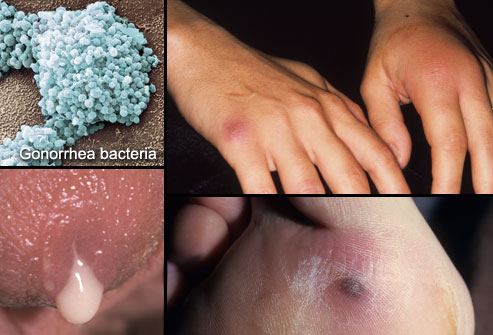By Steven Reinberg
[dropcap]A[/dropcap] vaccine to protect people from the sexually transmitted disease gonorrhea may be one step closer to reality, New Zealand researchers report.
That’s welcome news, because gonorrhea appears to be eluding treatment efforts to control the disease. Antibiotics are the only available treatment, but strains of antibiotic-resistant gonorrhea have developed, according to U.S. health officials.
“Despite efforts, a gonorrhea vaccine with any clinical effect has eluded development for over 100 years,” said lead researcher Helen Petousis-Harris, a senior lecturer at the University of Auckland.
Venereal disease is becoming an increasingly serious problem in developing countries. The availability of antibiotics in chemists’ shops has encouraged self-medication with sub-therapeutic doses and inadequate treatment regimens. At a health centre in Nigeria, a diagnosis of gonococcal urethritis was made in 159 out of 429 men presenting with urethritis. Neisseria gonorrhoeae was cultured in 141 cases and the sensitivity pattern to a number of antibiotics freely available at chemists was determined. The organisms were highly resistant to penicillin (84%), ampicillin (80%), tetracycline (68%), streptomycin (78%) and co-trimoxazole (83%). These were the cheapest of the drugs available, leaving only erythromycin and the more expensive drugs gentamicin and cefotaxime still effective for general use in treatment programmes.
“We have found a vaccine that prevented about one-third of gonorrhea in those who received it in a real-life situation. It is far from perfect, but it is a leap in the right direction,” Harris said.
Called MeNZB vaccine, it was developed to control a meningitis epidemic in New Zealand from 2004 to 2006 and is no longer available. But the antigens in the vaccine thought to provide the immune response to gonorrhea are included in the more recently developed 4CMenB vaccine, which is available in many countries, Petousis-Harris said.
The researchers found that people who had been vaccinated with the MeNZB vaccine were less likely to have gonorrhea than those who weren’t (41 percent versus 51 percent).
“We followed up the observation that gonorrhea rates appeared to drop in association with the use of this type of meningococcal B vaccine and found that indeed the vaccine had a protective effect against gonorrhea for a period of time after its use. About one-third of those vaccinated were protected,” Petousis-Harris said.
After taking into account factors such as race, sex, socioeconomics and geographical area, the researchers calculated that vaccination reduced the odds of getting gonorrhea by 31 percent.
In the United States, teens and preteens, as well as some children and adults, are advised to get one of two meningococcal vaccines to protect against meningitis. Whether the current meningococcal vaccines would protect against gonorrhea still needs to be tested.
It’s also not clear how long the immune response might last, Petousis-Harris said.
Weinberg is a HealthDay Reporter. Additional report by Victoria Ayuwei.





































Leave a comment